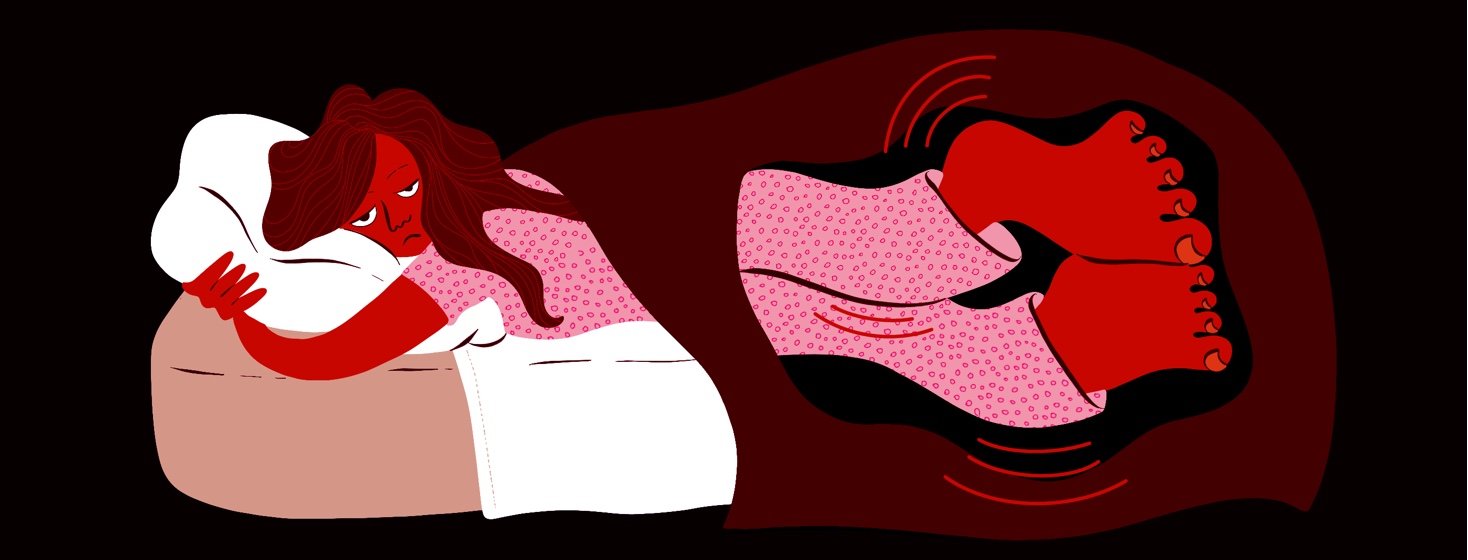Sleep Problems and HIV: A Primer
Whenever you live with a chronic health condition, including HIV, you’re tasked with getting good sleep.
But this can be hard to achieve. Work and family demands may be disruptive, or hidden health concerns may keep you from getting enough good sleep.
Let’s take a look at poor sleep among people living with HIV, to see how these problems can be avoided or addressed, and to learn why it’s so important to prioritize your nighttime zzz.
HIV’s main sleep problems
People living with HIV face four kinds of sleep problems:1-4
- Sleep disorders linked to HIV: chiefly, chronic insomnia and restless legs syndrome (RLS)
- Unrelated sleep disorders: commonly, obstructive sleep apnea (OSA)
- Excessive daytime sleepiness
- Poor sleep
Demystifying “poor sleep”
What does poor sleep mean? It might be more useful to describe good sleep instead.
Good sleep for most adults is 7 to 9 hours of consolidated sleep every night that leaves one feeling refreshed upon awakening.5,6
Anything more or less than this falls into the poor sleep category, in which you experience:2
- Less than 7 hours or more than 9 hours of sleep on most nights
- Frequent awakenings (also known as broken, disturbed, disrupted, or fragmented sleep)
- An inability to fall asleep or maintain sleep
- Awakening too early in the morning, unable to return to sleep
Causes of “poor sleep”
Sleep disorders make up just one cause. Others include:
- Poor sleep hygiene (see below)
- Anxiety and depression
- Health condition symptoms
- Lifestyle habits that sabotage sleep (recreational drug, alcohol, caffeine, or nicotine use, especially at bedtime)
- Shift work (jobs that require working nights or overnight)
- Treatment side effects
- Unhealthy sleeping environment (too light, noisy, or warm; no privacy)
Why good sleep matters
Without adequate, consolidated sleep periods, we risk sleep deprivation and sleep debt.
Sleep deprivation happens to all of us from time to time. When it becomes an ongoing problem, over time, it leads to sleep debt.
It’s difficult to “pay off” sleep debt without a concentrated effort. Once this spiral of perpetual sleep loss takes hold, it lays the foundation for developing a variety of chronic health problems such as:2,3,6-8,11
- Hypertension
- Mood disorders
- Compromised immune system
- Obesity
- Heart disease
- Type 2 diabetes
Sleep debt can also cause drowsy driving accidents and higher pain sensitivity and may worsen medical conditions.9,10
To make matters worse, those with HIV who have ongoing sleep problems may struggle to manage their condition, leading to:2
- Lower treatment adherence
- Faster disease progression
- Lower CD4 counts
- Undesirable metabolic changes
- Lower quality of life
What to do if you can’t sleep
It’s important to talk to your doctor if you think your:
- Medications impact sleep
- Mental health concerns contribute to poor sleep
- Physical health concerns, like pain, are disrupting sleep
They can also screen for, diagnose, and treat any hidden sleep disorders you may have.
In addition, you can help yourself by:
- Being vigilant with your HIV treatment
- Quitting smoking, drug use, or drinking
- Improving your sleeping environment
- Prioritizing your recovery sleep following night shift to reduce your risk for incurring sleep debt
- Practicing good sleep hygiene
Sleep hygiene basics
Sleep hygiene describes the things you do to help yourself fall asleep naturally. Practicing good sleep hygiene raises the odds you’ll get enough quality consolidated sleep. This can do so much good, including strengthening the immune system.11
Check out these three sleep hygiene “best practices.”8
- Lights out. Turn off backlit electronic devices (phones, laptops, tablets, games) at least an hour before bed. These emit blue spectrum light that delays your body’s release of melatonin, the hormone necessary for transitioning to sleep.
- Be consistent. Go to bed at the same time every night, and awaken at the same time every morning. This simple practice supports your circadian rhythms; a balanced circadian system can prevent many long-term health problems.
- Relax! Bedtime rituals are easy, inexpensive, pleasant, and effective, such as:
- Stretching
- Massage
- Warm baths
- Aromatherapy
- Soft music
- Journaling
- Breathing exercises
- Reading
- Progressive muscle relaxation
If you’ve tried these approaches but still struggle with fragmented sleep and/or significant daytime sleepiness, resolve to bring these problems to your doctor. They can investigate the root causes of, and possible solutions for even the most stubborn sleep problems.
Can you sleep too much when you have HIV?
People in advanced stages of HIV may experience hypersomnia.
Hypersomnia describes sleeping more than 9 hours a night while often napping for long periods during the day. Such extreme fatigue and the constant need to sleep can be disabling and worsen illness.
If you experience hypersomnia, ask your doctor to help you figure out why.12

Join the conversation